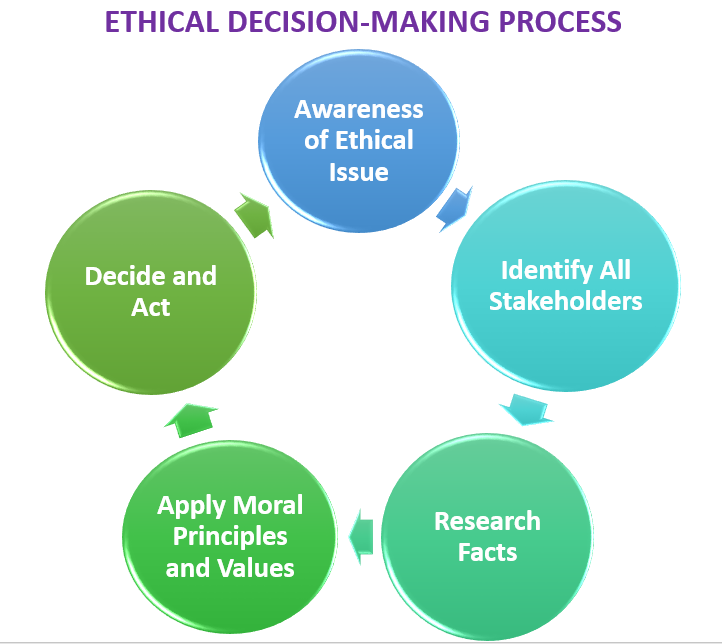Gina Raimondo has made significant strides in American politics as a transformative figure, particularly noted for her role as the U.S. Commerce Secretary. Over the years, her achievements reflect a commitment to innovative economic policies that prioritize the welfare of everyday Americans. With a keen focus on supply chain management, she successfully navigated the complexities that arose during the COVID pandemic, ensuring essential goods remained available. As the former governor of Rhode Island, she championed progressive changes, such as annual tax reductions and free community college tuition, that aimed to uplift her constituents. Raimondo’s ongoing dedication to fairness and opportunity continues to shape her political career, making her an influential leader in the realm of economic development.
In recent discussions surrounding American economic leadership, Gina Raimondo’s influence cannot be overstated. As a notable political figure, her career showcases a series of impressive milestones, particularly during her tenure in the Commerce Department. Her strategies aimed at bolstering economic resilience and managing supply disruptions highlight a forward-thinking approach to governance. Raimondo’s initiatives not only address immediate challenges but also establish long-term frameworks for enhancing domestic production and innovation. This comprehensive vision remains crucial for navigating the complexities of the modern economy, with an emphasis on building robust supply chains and fostering partnerships both at home and abroad.
Gina Raimondo’s Transformative Achievements in Politics
Gina Raimondo’s political journey has been marked by significant achievements that resonate deeply with her constituents and beyond. Serving as the U.S. Commerce Secretary and as the Governor of Rhode Island, Raimondo focused on initiatives that prioritized economic equity and growth. She was instrumental in reducing taxes annually and raising the minimum wage in Rhode Island, reinforcing her commitment to improving the lives of everyday working Americans. By providing free community college tuition, she actively worked to increase access to education, a stepping stone for many aspiring individuals looking to achieve the American Dream. These achievements not only reflect her economic policies but also her steadfast belief that government can be a force for good in fostering opportunities for all.
Moreover, Gina Raimondo’s term in office was characterized by a strategic approach to dismantling ineffective regulations, thereby enhancing Rhode Island’s business climate. Her implementation of a 30% reduction in state regulations is a clear indicator of her intent to create a more efficient environment for entrepreneurs and investors. This decisive action encouraged economic growth and innovation, empowering small businesses to thrive, which is critical for sustainable development. Raimondo’s achievements demonstrate that with thoughtful policies and an attuned understanding of the community’s needs, it is possible to enact profound changes that uplift and inspire.
Understanding Gina Raimondo’s Economic Policies and Their Impact
Gina Raimondo’s economic policies are rooted in a deep understanding of the complexities of modern commerce and the global supply chain. As the U.S. Commerce Secretary, she addressed significant challenges, particularly those arising from the disruptions during the COVID-19 pandemic. By systematically analyzing supply chains and establishing critical relationships with global partners, Raimondo exemplified leadership that prioritized resilience and adaptability in American commerce. Her efforts to build a collaborative approach in addressing supply chain issues not only aided immediate recovery but also set the foundation for future economic stability.
In addition to her supply chain initiatives, the CHIPs and Science Act epitomized Raimondo’s commitment to boosting domestic production, particularly in the semiconductor industry, which is vital for national security. By prioritizing investments that yielded significant returns—ensuring a $10 private-sector contribution for every dollar spent—she highlighted the importance of strategic financial planning in policymaking. Such economic initiatives reflect her holistic view that intertwines social and economic strategies, advocating for labor market programs that address childcare needs while promoting workforce participation. This dual approach signifies her belief in building a robust economy that not only allocates resources wisely but also invests in human capital.
The Role of Supply Chain Management in National Security
Gina Raimondo has emphasized the critical role of supply chain management in safeguarding U.S. national security during her tenure as a public servant. In light of recent global challenges, she recognized that America cannot operate in isolation—that strategic partnerships with other countries are essential for economic resilience. By fostering these relationships, particularly in Southeast Asia, Raimondo has worked to fortify supply chains vital for essential goods like pharmaceuticals and semiconductors. This proactive stance not only addresses immediate supply issues but also strengthens the U.S.’s position in global trade and security.
Furthermore, Raimondo’s insights into the semiconductor industry reveal the intricate balance of commerce and national security. With a significant portion of cutting-edge chips primarily manufactured overseas, Raimondo’s advocacy for domestic production through policies like the CHIPs and Science Act underscores a critical pivot in U.S. economic strategy. She articulates the direct link between technological advancements and national security, recognizing that the ability to produce advanced chips domestically is crucial for both economic competitiveness and defense capabilities. This focus on supply chain management encapsulates her understanding of the complexities facing contemporary America and her commitment to addressing these multifaceted challenges.
Gina Raimondo: A Legacy of Resilience and Adaptation in Politics
Throughout her political career, Gina Raimondo has exhibited resilience and adaptability in navigating the complexities of modern governance. She acknowledges the challenges of making significant changes within a divided political landscape, yet remains a proponent of progress. By addressing issues such as unemployment during crises like the COVID-19 pandemic, she has shown her commitment to ensuring that economic initiatives are responsive to the needs of the population. Her experiences serve as a testament to the importance of perseverance in politics—a sphere often criticized for its gridlock and inefficiency.
Raimondo’s legacy extends beyond individual policies; it reflects a broader philosophy that embraces transformation as a necessary component of growth. She has consistently advocated for innovative solutions that align economic interests with social well-being, such as integrating childcare plans within economic funding initiatives. By fostering a comprehensive framework that supports both workers and families, Raimondo sets a precedent for future generations of political leaders. Her ability to embrace change while maintaining a focus on the interests of everyday Americans is what will define her impact on U.S. politics.
Exploring the Significance of Fairness in Economic Policies
A central tenet of Gina Raimondo’s economic philosophy is the importance of fairness in public policy. She firmly believes that effective governance must prioritize equity and ensure that the most vulnerable populations are not left behind. By advocating for initiatives that aim to shrink the wealth gap—such as raising the minimum wage and improving access to education—Raimondo underscores the necessity of creating a more equitable economic landscape. This pursuit of fairness is not just a matter of ethics; it’s a strategic imperative for maintaining social stability and fostering long-term economic growth.
Furthermore, Raimondo emphasizes that the success of economic policies hinges on their inclusivity. She has argued that businesses looking to receive government funding must demonstrate a commitment to workforce diversity and support systems like childcare. This focus on integrating social considerations into economic planning reflects her understanding that labor markets operate most effectively when they are inclusive and considerate of diverse needs. By intertwining fairness with economic strategies, Raimondo advocates not just for immediate growth, but for a sustainable economic framework that empowers all citizens.
Lessons from Gina Raimondo’s Leadership During the COVID-19 Crisis
Gina Raimondo’s leadership during the COVID-19 pandemic serves as a case study in crisis management and effective governance. Facing unprecedented challenges, including skyrocketing unemployment and supply chain disruptions, she implemented measures that prioritized the welfare of her constituents. Her experience as the Governor of Rhode Island allowed her to act swiftly—extending unemployment benefits and supporting local businesses to mitigate the devastating impacts of the pandemic. This decisive action showcased her ability to balance urgent demands with strategic foresight.
Moreover, Raimondo’s commitment to transparency and communication during the crisis helped build public trust. By regularly addressing her constituents and sharing detailed plans to manage the pandemic’s effects, she fostered a sense of community resilience. This approach reinforced the importance of open dialogue in governance, particularly in times of uncertainty. The lessons drawn from her leadership provide valuable insights into the effectiveness of proactive measures, collaborative spirit, and the necessity of maintaining public confidence even in the face of adversity.
Gina Raimondo’s Vision for Future Economic Competitiveness
As discussions about the future of U.S. competitiveness evolve, Gina Raimondo has emerged as a key figure articulating a comprehensive vision aimed at ensuring the nation’s economic vitality. Central to her approach is the belief that fostering innovation and collaboration is crucial for maintaining a competitive edge in a rapidly changing global landscape. Her efforts in enhancing relationships with key international partners underscore the importance of working together to address common challenges, from technological advancements to environmental concerns.
Looking forward, Raimondo’s strategies emphasize the need for the U.S. to lead in emerging sectors such as clean technology and digital infrastructure. By advocating for policies that prioritize research and development, she aims to position America as a frontrunner in driving sustainable economic growth. Her understanding of the interconnectedness of various sectors, including technology and industry, reveals a forward-thinking mindset that embraces adaptability and innovation as necessary components for future success. This vision not only reflects her leadership style but also signifies a commitment to crafting a resilient economic framework for generations to come.
Affirming the Importance of Investment in Workforce Development
Gina Raimondo has consistently emphasized the crucial role that workforce development plays in shaping a robust economy. Recognizing that a skilled and adaptable workforce is vital for responding to today’s labor market demands, she has championed initiatives aimed at enhancing educational opportunities and vocational training. By linking workforce development to economic policies, Raimondo illustrates her commitment to ensuring that all individuals, regardless of their background, have the tools necessary to succeed in an evolving job landscape.
Moreover, her advocacy for integrating childcare solutions within workforce strategies highlights a broader understanding of the barriers many families face. By ensuring that workforce development programs are accessible and responsive to the needs of caregivers, she actively works towards creating an inclusive labor market. This holistic approach not only addresses immediate workforce shortages but also contributes to long-term economic stability by empowering diverse segments of the population to participate fully in the economy. Raimondo’s forward-thinking policies reflect an acknowledgment that investment in human capital is an essential strategy for sustainable growth.
Reflections on Challenges and Compromises in Politics
Gina Raimondo’s reflections on her political career reveal a nuanced understanding of the inherent challenges within governance. Acknowledging that few policies are implemented without compromise, she faced obstacles in advancing her agenda in a highly polarized political environment. This recognition underscores the complexities of governing, where competing interests frequently clash, and achieving consensus can be elusive. By sharing these insights, she sheds light on the reality of political negotiations, emphasizing that progress often requires balancing ideals with the practicalities of collaboration.
Additionally, Raimondo’s admission of past mistakes illustrates her commitment to growth and introspection as a leader. By candidly discussing the difficulties she faced—including the potential pitfalls of overcompromising—she positions herself as a relatable figure who understands the human aspect of political life. This level of transparency fosters trust with the public, reinforcing the notion that effective leaders are not only decisive but also willing to learn from their experiences. Her journey highlights that while governance is fraught with challenges, the potential to effect meaningful change remains ever-present.
Frequently Asked Questions
What are some key achievements of Gina Raimondo during her political career?
Gina Raimondo, during her tenure as the Governor of Rhode Island and later as the U.S. Commerce Secretary, has made significant contributions including reducing taxes annually, raising the state minimum wage, and making community college tuition-free. Additionally, she eliminated 30% of state regulations and promoted economic growth by improving supply chain management.
How has Gina Raimondo shaped economic policies as U.S. Commerce Secretary?
As U.S. Commerce Secretary, Gina Raimondo has focused on strengthening supply chains, especially during the COVID-19 pandemic. She spearheaded initiatives like the CHIPs and Science Act to boost domestic semiconductor production and fostered international relationships to enhance U.S. economic competitiveness.
What strategies did Gina Raimondo implement to address supply chain issues during her term?
Gina Raimondo tackled supply chain complexities by creating detailed spreadsheets for critical supply chains, like pharmaceuticals, and facilitating international collaborations to ensure the availability of essential goods during the pandemic.
What impact did Gina Raimondo have on U.S. competitiveness in her role as Commerce Secretary?
Gina Raimondo’s leadership as Commerce Secretary has significantly impacted U.S. competitiveness by focusing on domestic production through legislation such as the CHIPs and Science Act, which aims to increase semiconductor manufacturing and bolster national security.
What challenges did Gina Raimondo face regarding inflation and economic recovery during her political career?
Gina Raimondo, while serving as Rhode Island’s governor during the COVID crisis, faced immense challenges including a surge in unemployment claims. She defended the federal stimulus measures against criticism for inflation, emphasizing their necessity in preventing greater economic suffering.
| Key Point | Details |
|---|---|
| Leadership Approach | Gina Raimondo emphasizes that making positive changes often requires breaking things, but it is essential not to hurt people in the process. |
| Achievements as Governor | Raimondo reduced taxes annually, raised the state minimum wage, made community college tuition-free, and eliminated 30% of state regulations. |
| Political Motivation | Inspired by her immigrant family’s hard work, Raimondo got involved in politics to help those who work hard and feel overlooked. |
| Response to Supply Chain Issues | Raimondo addressed supply chain challenges during COVID by creating spreadsheets and fostering relationships with other countries. |
| CHIPs and Science Act | Under Raimondo’s stewardship, the Act was designed to enhance domestic semiconductor production, crucial for national security. |
| Fiscal Responsibility | She highlighted the benefits of the CHIPs act, securing $13 in private funding for every $1 invested by the government. |
| Challenges with China | Raimondo stresses the need for fair trade practices, pointing out that China does not adhere to the same rules. |
| Reflections on Accomplishments and Criticism | While acknowledging mistakes, Raimondo remains proud of the achievements made in difficult political times. |
| Stimulus Program Defense | She argues the importance of the Biden stimulus act in preventing unemployment during the COVID crisis, despite inflation concerns. |
| Integration of Social Programs | Raimondo insists that social investments, like childcare, are necessary for a robust labor market. |
Summary
Gina Raimondo exemplifies the belief that progress often requires bold decisions and strategic changes. Her approach in both the state of Rhode Island and as U.S. Commerce Secretary reflects her commitment to improving the economy and ensuring fairness, particularly for hard-working Americans. By focusing on building relationships, enhancing domestic production, and integrating social initiatives with economic strategies, Raimondo continues to champion innovative policies that aim for a brighter future.



